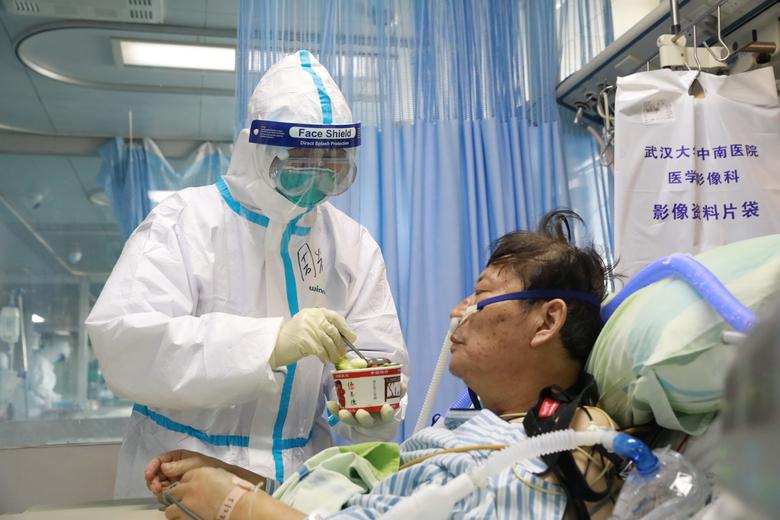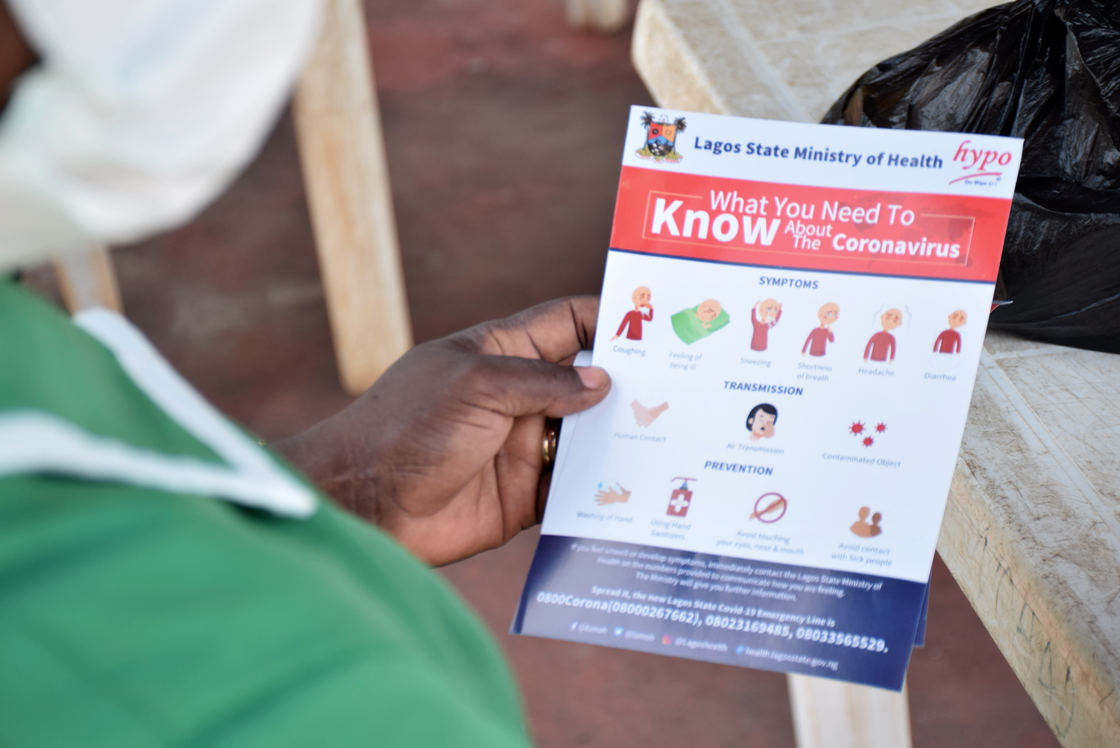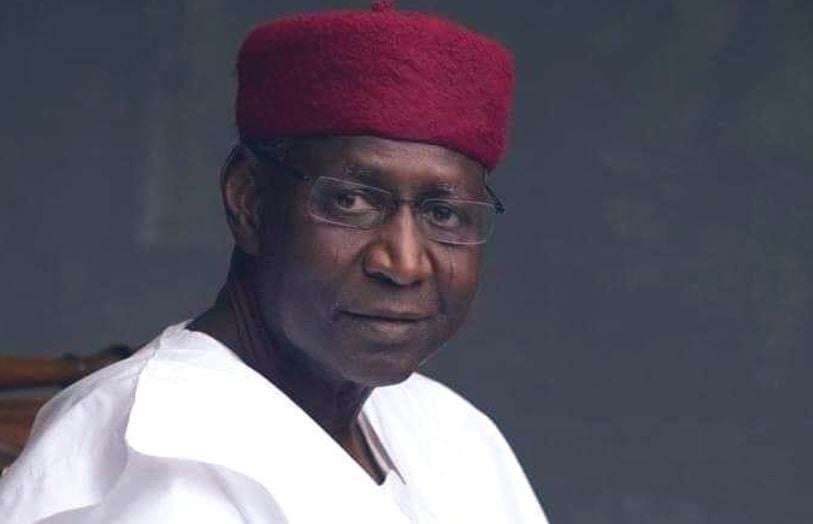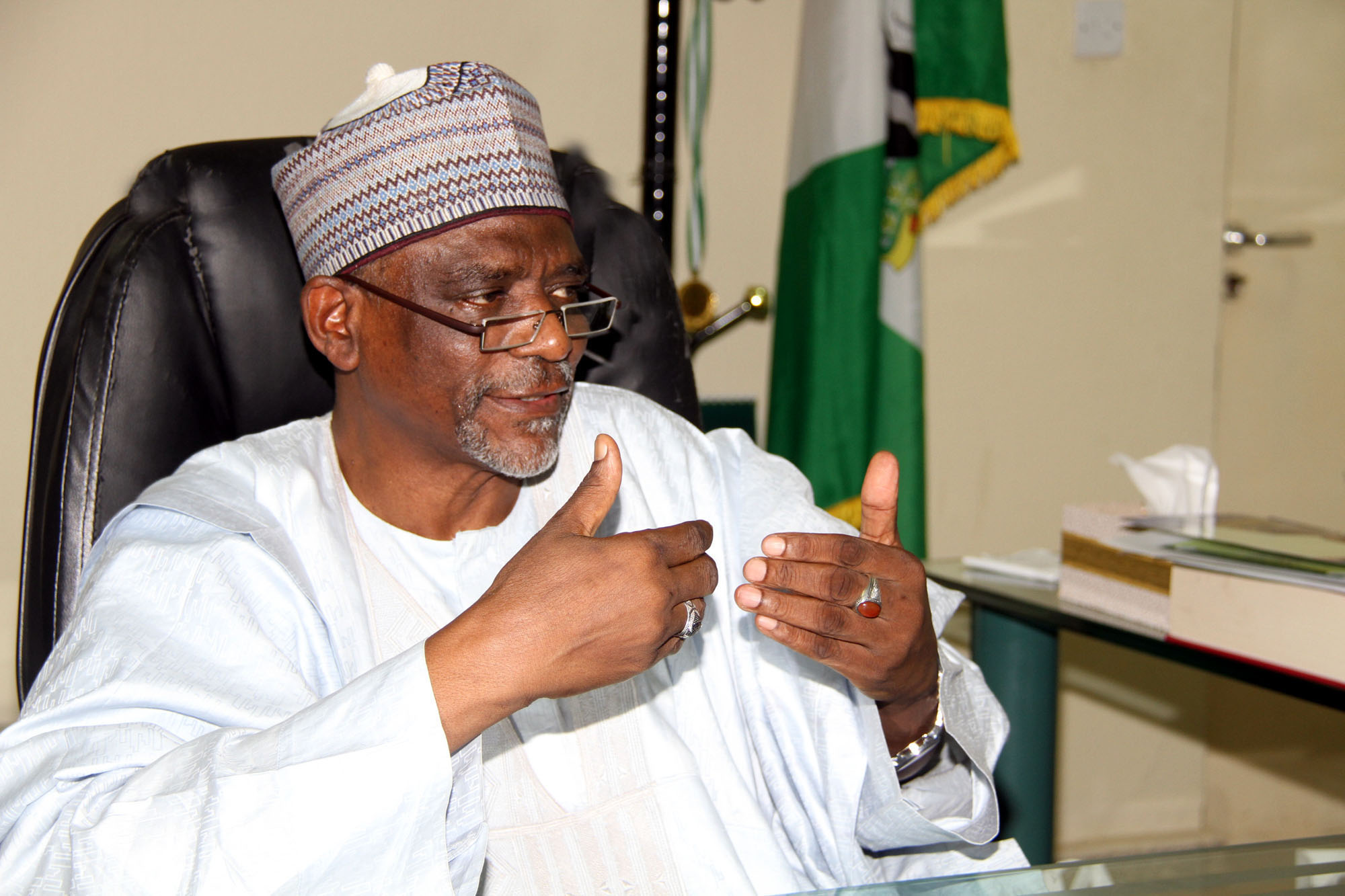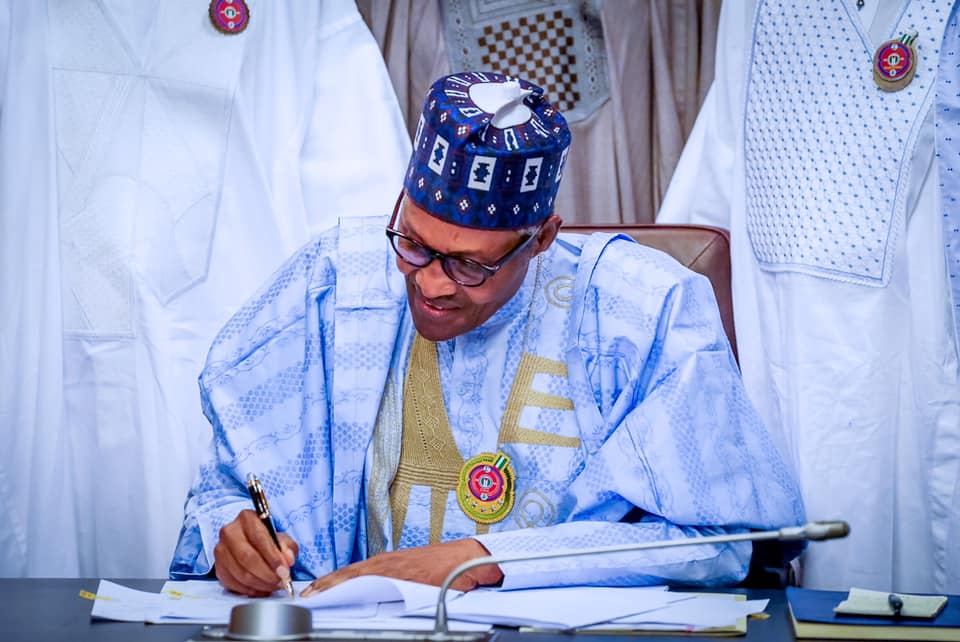A nurse in a protective suit feeds a coronavirus patient inside an isolated ward at Zhongnan Hospital of Wuhan University, February 8, 2020. China Daily via REUTERS
As conversations around COVID-19 move from death to data, ventilator to survivor, spread to flattening the curve, and lockdown to re-open, the relationship between China and the rest of the world is once again a subject of scrutiny.
The fallout of the coronavirus has moved China from a country that we all showed concerned for as the biggest victim of the virus just a few weeks ago to one that offends. It’s both obvious and inevitable.
There are many reasons why China now stands in the dock.
A sudden revised of data from Wuhan that increased death toll from the initially reported figures; suspension of debt repayment for countries in Africa; inhuman treatment of Africans in China, and U.S President Donald Trump’s accusation that the World Health Organization “pushed China’s misinformation,”—an explanation Trump is making for America’s slow response to COVID-19, and subsequent fatalities—are all the reasons China has come under heavy criticism.
Advertisement
But perhaps most telling to me has been China’s benefactor posture in Africa. China sees itself as the very help in time of need in Africa. And until now, that is the same way African leaders looked at China.
At the 2018 Forum on China-Africa Cooperation (FOCAC) in Beijing, about 50 African leaders who gathered to clap for Chinese President Xi Jinping did not give thought for once to mounting debt, trade deficits, and talk of neocolonialism. They took turn to praise China to high heavens.
“In the values that it promotes, in the manner that it operates and in the impact that it has on African countries, FOCAC refutes the view that a new colonialism is taking hold in Africa, as our detractors would have us believe,” said South Africa’s President Cyril Ramaphosa.
Advertisement
Ghanaian president Nana Akufo-Addo said, “I have urged others not to ignore Africa, and I am glad that China is, most certainly, not ignoring our continent.” And the talk rotated from one African president to another.
Let me be clear: China’s fingerprints and footprints are visible in Africa. On the whole, its huge investments in infrastructure, agriculture and manufacturing sectors continue to boost the economy of African countries.
Much more, ordinary Africans are taking notice of visible evidence of Chinese influence in their countries. For instance, when someone gets on the passenger car to travel in a light rail in Addis Ababa, the tiny label of China emblazoned at a corner of the passenger car tells him of what China like to call its ‘’real deal” for Africa.
In Nigeria, a visit to the multi-billion-dollar Lekki free trade zone that has 60 percent Chinese investors will immediately make an average citizen in the country have a feeling that China’s partnership with Africa is going to change the future, despite all the hue and cry about Chinese aid and trade in Africa.
Advertisement
For some, China’s show of strength in Africa is seen as a desired counterbalance to the West.
China is the largest Africa trading partner. It surpassed the United States in 2009. Indeed, this 2015 news headline by Reuters, that “China’s Xi cheers African leaders with pledge of $60 billion for development,” tells the story better.
But the recent racist behavior in Guangzhou, where Chinese landlords poured insults on Africans in their township, expelled them from their homes with denied access to restaurants owned by the Chinese exposed the soft underbelly of Chinese partnership with Africa.
No amount of rebuttal can explain what made Chinese government to turn blind eye, when its citizens came together to act this way, even to the extent of hurling direct insults at a Nigerian diplomat who visited the city for assessment.
Advertisement
Guangzhou has always been in the news for its intolerance of Africans, but Chinese government has always turned a blind eye.
From some of people I spoke to, the Chinese racism stems from intolerance for the growth of African immigrants and their mixed-blood kids with Chinese women.
Advertisement
In the past, China has told the tales of African immigrants bringing drugs and crime along with them to deflect the truth.
Yes, I cannot make the boast that every African living in China have the social grace that China needs. But newspaper headlines are clear about the bad behavior of Chinese toward Africans that goes on daily in their communities.
Advertisement
In July 2009, Deustwelle, Germany’s international broadcaster and one of the most successful and relevant international media outlets carried a relatable headline. It says: “Africans in China experience social, not language problems.” The inside story according to Deustwelle borders on interracial relationship.
To be sure, in 2012, America’s Wall Street Journal investigated why Africans suffered so much attack in China, and in its report the newspaper stated that racist comments against Africans abound on many online forums in China.
Advertisement
As recent as March 2017, in Beijing, a Chinese politician, Pan Qinglin made a dangerous proposal to get rid of black people in Guangdong.
According to reports, Qinglin feared a growing black population in China is a “security risk” and must be “strictly controlled.”
In his proposal, Quinglin says, “Africans have a high rate of AIDS and the Ebola virus that can be transmitted via body fluids…If their populations [keeps growing], China will change from a nation of-state to an immigration country, from a yellow country to a black- and-yellow country.”
Ordinarily, the idea that African immigrants who may not be up to 400,000 in numbers will take over China, a nation of 1.4 billion people, is nonsense. But the impact of such divisive rhetoric is the real struggle faced by Africans in China.
To ventilate racism idea like this is easy in China. Mobile phone and internet are already on the palms of Chinese people and Baidu Tieba, a Chinese online social forum provides a platform for a social gathering.
China has always been so obsessed about trading with Africa with less regard for the rule of partnership and African leaders cannot continue to close their eyes to the ill treatments of its citizens because of aid and trade.
For me, there’s no better time to make a demand on China than now. Of course, I am comforted that for the first time African ambassadors in China jointly forced back the “stigmatisation and discrimination” with a strongly worded letter to Beijing.
“The Group of African Ambassadors in Beijing immediately demands the cessation of forceful testing, quarantine and other inhuman treatments meted out to Africans,” the letter said.
The real reason for Africans to ask China to respect the rule is this: China has more to benefit from Africa.
Behind its burgeoning economic presence that comes with loan and aid package to develop infrastructure, improve agriculture, boost manufacturing and reduce poverty on the continent is China’s soft power to create opportunities for its companies to spread all over Africa.
Chinese companies are doing well in construction, manufacturing and technology sectors with their eyes on housing, agriculture, financial services, and transport and logistics businesses in Africa.
At the end, China plans to achieve what America currently enjoy. In 2018, American firms repatriated $776.51 billion in profits made oversees.
In 2017, a special report by Mckinsey & Company stated that by 2025 Chinese firms could be earning revenues worth $440 billion, from Africa.
As should be expected much of the profit will be repatriated back to China. And for those reasons, for African leaders to stand up for its citizens in China, there’s nothing to lose. If it is not already happening, African foreign ministries need to step up their intelligence on racism against Africans in China.
Views expressed by contributors are strictly personal and not of TheCable.

